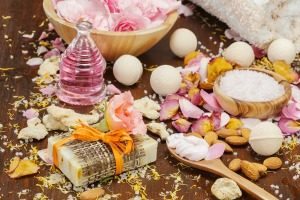Remedies for Seniors with Dry, Chapped Skin
Senior Care Bellevue WA
As people age their skin tends to change. It can become be more dried out, bruise more easily from decreased elasticity, develop age spots, develop benign growths, and have a higher risk of skin cancer. You may have noticed one or more of these conditions happening with the senior for whom you’re serving as family caregiver.
When it comes to dry skin, there are some areas more susceptible to being dry, or even calloused, than others. The elbows, lower arms, hands, lower legs, ankles are prime areas on a senior’s body where dry skin patches make their skin feel rough and scaly. There could be very simple explanations for it, or it could be the sign of something more serious.
Let’s look at the simplest ones first, and what to do about them.
Dry skin could be the result of:
Not drinking enough fluids
Spending too much time in the sun, or sun tanning—either outdoors or at a tanning salon
Being in very dry air
Smoking
Experiencing stress
Losing sweat and oil glands, something that is common with the aging process
Some ways to help combat dry skin would be to use lotions, creams, ointments or moisturizers every day, multiple times if the dryness is severe; take fewer baths or showers; when bathing or showering, use warm, not hot warm and don’t add bath oil to your bath water as it could make the tub slippery and possibly cause a slip or fall; use a mild soap; try using a humidifier in the home to help add moisture to the air.
Other things can make dry skins worse, such as using too much soap, antiperspirant, perfume, and taking hot bath, as mentioned earlier.
Of course, dry skins can also be caused by certain health conditions. Examples of some medical reasons include: Eczema, heatstroke, diabetes, kidney disease, hypopituitarism, hypothyroidism, psoriasis, scleroderma, or Sjogren’s syndrome.
If the person you’re a family caregiver for suffers from a mild case of dry skin, you may want to suggest they try some of the suggestions above and if those remedies don’t work, have them see their doctor, who could prescribe something for the dry skin, or perhaps test for something for serious. Or, you may want to err on the side of caution and have them see their physician right away, especially if it’s been ongoing for a while.
It’s important to note that some medicines can make skin itchy. And because older people have thinner skin, scratching, especially if repetitive or excessive, can cause bleeding which in turn could result in infection. So if your loved one’s skin is very dry, or itchy, it’s probably smart to see the doctor right away.
Bottom line: Only their doctor can advise whether any of these home treatments are appropriate for their specific case of dry skin. And any kind of treatment option should be discussed with the doctor before making a decision—that includes not just starting a treatment, but stopping one, as well.
Source: www.webmd.com
If you or an aging loved one are considering Senior Care Services in Bellevue WA, contact the caring staff at Hospitality Home Care today. Call us at (206) 966-6552.
- Is Chocolate a Healthy Valentine’s Day Treat? - February 1, 2018
- Preventing Hip Fractures in Elders - January 24, 2018
- Ways to Work Out When It’s Too Cold to Go Outside - January 18, 2018
